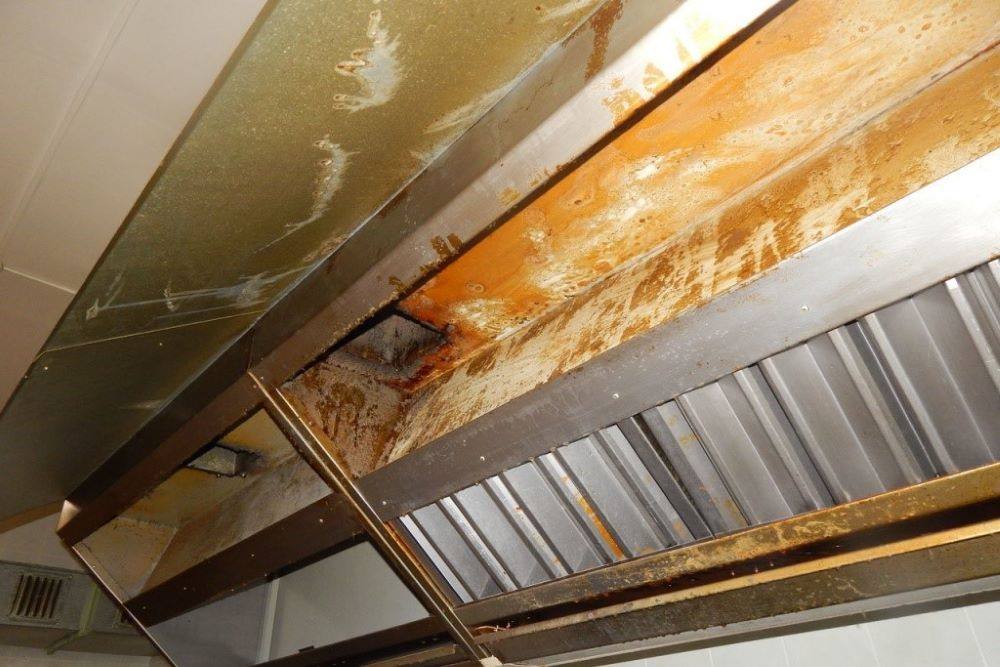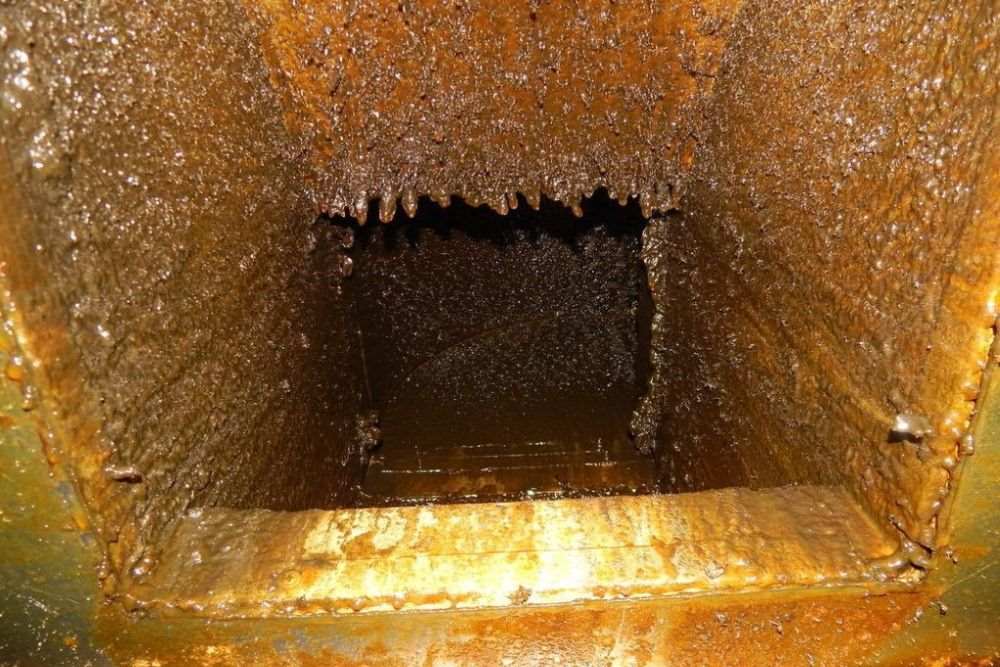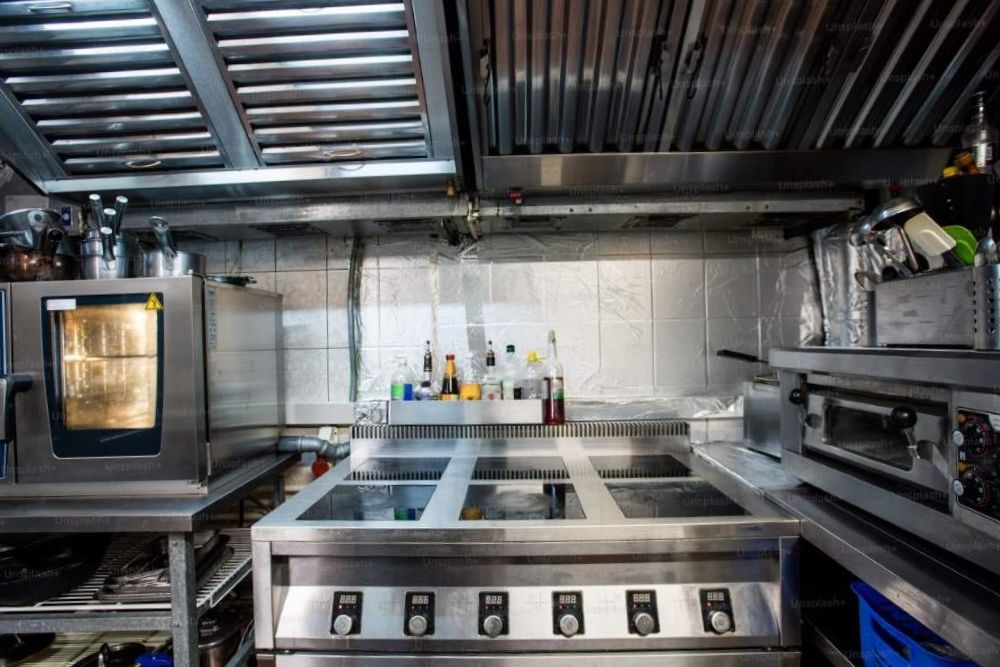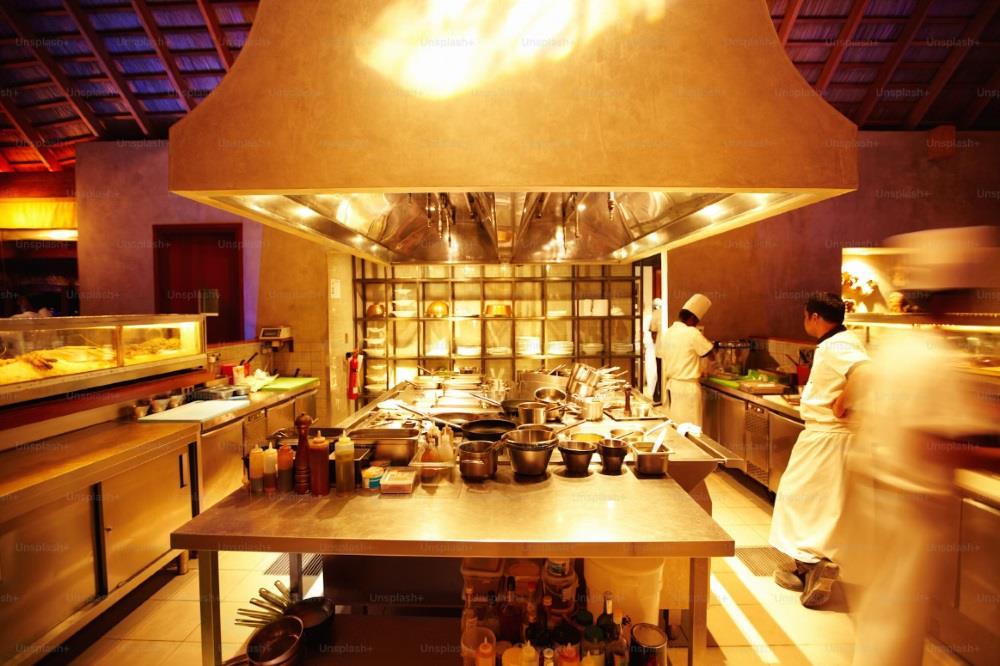Commercial kitchen exhaust systems play a crucial role in maintaining air quality and safety standards in restaurants and other food establishments. However, over time, these systems can become clogged with grease, oil, and other debris. This poses a fire hazard and reduces efficiency. That’s why professional cleaning is essential to ensure the proper functioning of kitchen exhaust systems and other kitchen equipment. In this article, we’ll explore the importance of professional cleaning and provide insights into the process.
Importance of Professional Cleaning
To begin with, the importance of professional cleaning cannot be overstated. It’s crucial for maintaining the efficiency and safety of commercial kitchen exhaust systems.
- Fire Prevention. One of the primary reasons for professional cleaning of kitchen ventilation systems is fire prevention. Grease buildup within the ductwork and exhaust fans can ignite easily, leading to devastating fires. Regular cleaning by trained professionals helps remove grease deposits and minimizes the risk of fire hazards.
- Improved Air Quality. A clean kitchen exhaust system promotes better air quality by removing smoke, odors, and airborne contaminants from the kitchen environment. This is particularly equally important for maintaining a comfortable and healthy workspace for kitchen staff and patrons.
- Enhanced Efficiency. A clean exhaust system operates more efficiently, ensuring that cooking fumes are effectively captured and expelled from the kitchen. Improved efficiency can lead to energy savings and prolong the lifespan of equipment such as exhaust fans and ductwork.
The Professional Cleaning Process
Moving on to the professional cleaning process involves several crucial steps. These steps ensure the thorough removal of grease, oil, and other debris from the exhaust system.
- Assessment. The cleaning process typically begins with a thorough assessment of the kitchen exhaust system to identify areas of heavy buildup and potential issues. Trained technicians inspect the ductwork, exhaust fans, filters, and other components to determine the extent of cleaning required.

- Preparation. Before cleaning begins, the kitchen area is prepared to prevent grease and debris from spreading. Protective coverings are placed over cooking equipment, countertops, and other surfaces to minimize contamination.
- Degreasing. Professional cleaners use specialized degreasing agents and equipment to break down and remove grease deposits from the interior surfaces of the ductwork, exhaust fans, and filters. High-pressure steam cleaning may also be employed to dislodge stubborn buildup.

- Mechanical Cleaning. Besides to chemical degreasing, mechanical cleaning methods such as scraping and brushing may be used to manually remove grease and debris from hard-to-reach areas within the exhaust system.
- Final Inspection. Further cleaning is complete, technicians conduct a final inspection to ensure that all components of the kitchen ventilation system are free from grease and contaminants. Any areas requiring additional attention are addressed before the system is deemed clean and operational.

How to Clean a Kitchen Exhaust System: DIY Tips
Although professional cleaning is recommended for thorough maintenance of commercial kitchen exhaust systems, there are some steps that restaurant owners and kitchen staff can take to supplement professional services:
- Regular Inspection: Conduct routine inspections of the exhaust system to identify signs of grease buildup or damage.
- Cleaning Filters: Clean or replace exhaust hood filters regularly to prevent grease accumulation.
- Surface Wiping: Wipe down visible surfaces of the exhaust hood, ductwork, and fans with a degreaser and warm water solution.
- Schedule Maintenance: Establish a schedule for professional cleaning and maintenance of the kitchen ventilation system to ensure ongoing performance and compliance with safety regulations.
In conclusion, professional cleaning of commercial kitchen exhaust systems is essential for maintaining safety, air quality, and efficiency in food service establishments. Additionally, by investing in regular cleaning services and implementing proactive maintenance measures, restaurant owners can safeguard their kitchen environments and protect against potential hazards.
